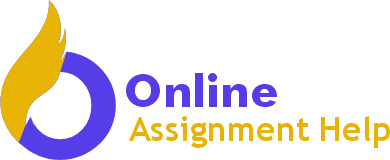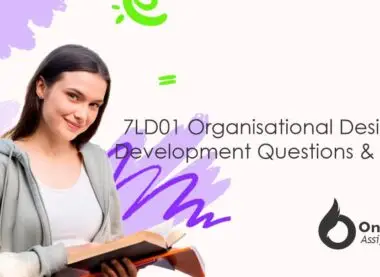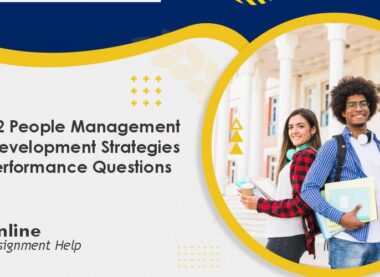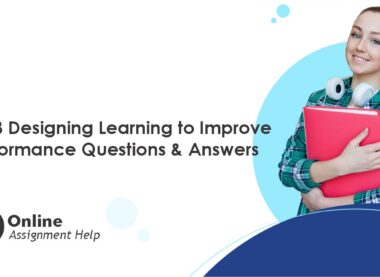About this unit
This unit emphasizes the critical nature of evidence-based, outcome-driven, and principles-based practice in advancing the people profession’s fundamental purpose. It examines how human resource professionals add value and deliver results for organizations and employees, as well as how contributing to corporate goals boosts productivity and employee satisfaction. Additionally, it emphasizes the importance of policies and practices being conveyed coherently, integrated, and consistent with organisational goals.
What you will learn
You will understand the benefits and advantages of connecting individual practice methods with organizational objectives, as well as gain knowledge on how organisations incorporate individuals’ practices with culture, image, and values, including the assessment of data sources used to shape people’s practice. Through conducting evaluations in the areas of human resource management and performance management, you will gain an awareness of contemporary human resource management practices. To effectively devise and implement these people practices objectives at work, learners will gain an understanding of how to incorporate goals and policies into organizational strategies. In addition, the learner will study learning and development as well as organisational design and growth. Understanding the function and effect of people professionals is another critical component of the learning process for this unit, as a learner, you will debate the merits of the various and diverse degree to which human resource management practices is structured and organized within organisations. The subject will teach learners about the areas in which people professionals will take responsibility in managing employees. These categories include recruitment, selection, retention, employee growth through learning and development programs, and employee relations. Other topics you will cover through this learning process that are relevant to comprehending the role of people professionals include encouraging and engaging professionals in order to guide them in reaching organizational goals and thus documenting enhanced work performance. Finally, as a learner, you will assess the ethical and practical difficulties posed by data analytics and technological advancements.
This unit is suitable for persons who
This unit is essential for the following groups of people:
- Those who are working in an organization where they are accountable for the implementation of human resource policies.
- Are aspiring to pursue a profession in human resource management and have completed CIPD Foundation Diploma in Human Resource Practice.
- Have worked in the sector for a period of time but lack professionally recognized human resource qualifications.
- Are experienced people practitioners employed in a senior people practice position seeking to broaden and deepen their capacity, knowledge, and skills to impact strategy, policy, and people
- They are in pursuit of a professional qualification to advance their career in human resources (HR) and learning and development (L&D) management.
- Desire to increase their autonomy, influence, and judgment in order to effectively lead and drive organizations and their people on a strategic level.
Learning outcomes
Upon completing this module, learners will be able to meet the following major learning outcomes, which are further classified into various sub-categories. Through these learning outcomes, the learner will be able to comprehend:
- The advantages of aligning human resource practices with organizational strategy and culture. (Learning outcomes 1)
- Understand how developing people practices improves organizational performance and employee satisfaction. (Learning outcomes 2)
- Have a working knowledge of current practices in the major areas of human resource management and development. (Learning outcomes 3)
- Recognize the role and significance of human resource professionals in a variety of organizational settings. (Learning outcomes 4)
What are the entry requirements?
The unit has a variety of formal requirements for an expert level qualification, some of which differ from institution to institution, while others are inclusive of all students enrolled for the unit. A majority of institutions have created their own diagnostic tools to ensure that candidates have the requisite qualifications to study for the profession and live their working lives in a changing business environment (7CO02). Some universities, for example, require candidates to be at least 18 years old on or before the first of July of the academic year in which they seek to enrol in the course. Furthermore, most schools conduct interviews with their applicants before enrolling them in the course.
In most situations, universities require candidates to have a basic understanding of the English language in order to enrol in the course. Some, for instance, require candidates to have a GCSE score of C/4 or higher in English. However, institutions follow the CIPD recommendation, which encourages learners to seek guidance before enrolling in the program if English is not their first language. Some colleges require students with English as a second language to obtain IELTS 6.5/ESOL Level 2 or an equivalent. On the other hand, other institutions prefer to assess situations on an individual basis.
Most, if not all, institutions need candidates to have a bachelor’s degree and CIPD level 5 certifications and be currently or previously employed in a human resource position. Others require candidates to have a Level 6 Bachelor’s degree (Hons) in a human resource-related field. However, a fundamental necessity is that candidates have significant expertise in a human resources function. In extreme circumstances, substantial human resource experience at the strategic level may be accepted in lieu of a degree subject for evaluation. These diagnostics ascertain that learners can complete and comprehend the Unit’s and literacy requirements successfully.
How we can help
Writing tasks are well-known for taking an inordinate amount of time to complete. Our obligation is to relieve you of academic burdens. We offer writing aid to students who seek assistance with assignments relating to “People management and development strategies for performance” (7CO02).”We have created a writing platform based on intellectual capacity with you in mind. A collaborative workspace where brilliant minds come together to help you avoid study headaches, stress, and all-nighters. We are a group of highly skilled writers, editors, and proof-readers whose primary objective is to make exceptional work more accessible by relieving you of the burden of performing the tedious work yourself. Our staff consists of highly qualified experts who ensure that our clients receive the best grade possible on their research and projects. We never decline a customer’s request, regardless of urgency or complexity. We have a strict zero-tolerance policy for plagiarism, and each assignment is completed entirely from scratch. Prior to submitting each paper to you, we scan it for originality using licensed software to ensure that it is 100 percent unique. Our highly-qualified writers are capable of completing any paper, and you can be certain that it will be thoroughly researched. We pay close attention to the amount of effort put into the research that goes into the paper to ensure that it is comprehensive and based on credible sources.
Furthermore, in order to adhere to all marking rubrics and reference styles, the document must be thoroughly proofread. Many students are concerned about the security of their personal information; however, have no fear; we have an impeccable Privacy Policy that ensures our writing service is completely safe, secure, and private. Our primary goal is to ensure that every customer who works with us achieves academic achievement.
Resources used for the unit
For students interested in pursuing this course, there are a variety of publications available. Here are a few examples that institutions across the globe extensively utilize.
Armstrong, M., & Taylor, S. (2020). Armstrong’s handbook of human resource management practice. Kogan Page Publishers.
Collings, D.G., Wood, G.T. and SZAMOSI, L.T. (eds) (2019) Human resource management: a critical approach. 2nd ed. Abingdon: Routledge.
Chytiri, A. P. (2019). HUMAN RESOURCE MANAGERS’ROLE IN THE DIGITAL ERA.
Hyman, J. (2018). Employee Voice and Participation: Contested past, troubled present, uncertain future. Routledge.
Marchington, M., Wilkinson, A., Donnelly, R. and Kynighou, A. (2020) Human resource management at work: the definitive guide. 7th ed. London: CIPD Kogan Page.
Marr, B. (2018). Data-driven HR: how to use analytics and metrics to drive performance. Kogan Page Publishers.
Szulc, J. M., Davies, J., Tomczak, M. T., & McGregor, F. L. (2021). AMO perspectives on the well-being of neurodivergent human capital. Employee Relations: The International Journal.
Torrington, D., Hall, L., Atkinson, C., & Taylor, S. (2020). Human resource management. Pearson UK.
Wilkinson, A., Bacon, N., and Snell, S. (eds) (2019) The Sage handbook of human resource management. 2nd ed. London: Sage.
Wilkinson, A., Redman, T. and Dundon, T. (2017) Contemporary human resource management: text and cases. 5th ed. Harlow: Pearson Education.






